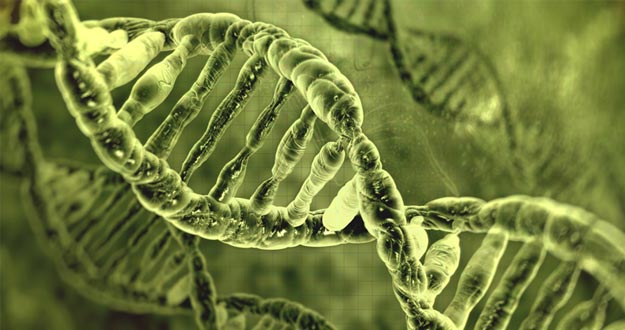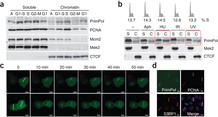The PrimPol protein recognizes DNA damage and repair it.
PrimPol is an evolutionarily ancient enzyme.
Scientists are already studying their role in disease development.
The human body produces every day new cells to regenerate tissue and repair those, which have suffered injury. Each time this happens, the cells make copies of their DNA, to be forwarded to the resulting daughter cells.

DNA molecules
This process of copying DNA, also called replication, is very delicate, and it can cause serious DNA alterations associated with tumor transformation or aging.
Researchers at the National Cancer Research Centre (CNIO) led by Juan Mendez, head of the DNA Replication Group, in collaboration with Luis Blanco, of the Centre for Molecular Biology Severo Ochoa (CBM-CSIC), have discovered how a human enzyme, the PrimPol protein is able to recognize DNA damage and facilitate repair during the copy process, preventing irreversible and fatal damage to the cells and the organism.
The results are collected by the edition of the journal Nature Structural and Molecular Biology, which are a continuation of previous work recently published by the same researchers in the journal Molecular Cell, in which were described the existence and the biochemical properties of the enzyme PrimPol .

The PrimPol enzyme, associated with nuclear chromatin in S phase and in response to DNA damage
The DNA, that resides in the nucleus of cells, is the carrier of genes, the instruction manuals that dictate cell function. "The structure of the DNA is very stable, except for about eight hours, that replication takes in human cells. Then it becomes more fragile and can break”, says Mendez.
These eight hours are therefore critical to the cells: they have to monitor that the copy is accurate, and if there are errors or DNA damage, they have to repair them in the most efficient manner possible.
The enzymes, that synthesize new DNA copies, are the DNA polymerases. "When a DNA polymerase encounters an obstacle in DNA [for example, a chemical alteration introduced by ultraviolet radiation from sunlight], the copy is interrupted and stop until the error is being repaired. This disruption can cause DNA breaks, translocations of chromosome fragments of some others and even cause cell death or tumor transformation”, says Mendez.
The research made by the CNIO and CSIC shows that the enzyme, PrimPol, prevents the copying process is interrupted when no harm: recognizing injuries and jumps, so that will be repaired when backup finishes.
The PrimPol is an evolutionarily ancient enzyme, and similar proteins were found in Archeobacteria, one of the first forms of life that inhabited the planet.
“Millions of years ago, the living conditions were harder [high salinity, extreme temperatures, etc..], So PrimPol probably adapted to synthesize DNA in these conditions favorable damage", said Mendez, adding that "in exchange these primitive DNA polymerases are less accurate than more advanced backup systems and can introduce mutations".
Scientists advance that this increase in mutations could have played a crucial role in the evolution of genomes, as well as having an impact on the aging of cells and cancer development. Identified and characterized this novel protein in humans, investigatorsadvanced that they are already studying its role in disease development.
I hope that Science further research, to increase the quality of life for many people.
Till soon, kind regards,
Luis.
Sponsored by Costaluz Lawyers.
Please click down here:
